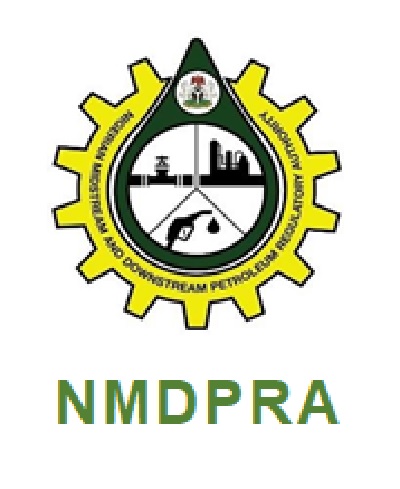The Authority Chief Executive of the Nigerian Midstream and Downstream Petroleum Regulatory Authority (NMDPRA), Farouk A. Ahmed, has stated that the agency is supporting the establishment of the Africa Energy Bank due to the need to address the observed deficit in financing critical energy projects in the country.
He described the establishment of the Africa Energy Bank as a potential game changer in enabling investment in critical infrastructure across the continent.
With the formation of the bank, Ahmed expressed optimism that Nigeria is poised to become the energy center of Africa, offering competitive financing and a favorable regulatory environment.
Ahmed disclosed this during the Inaugural Meeting of the Petroleum Industry Stakeholders’ Forum (PISF) in Abuja.
Addressing the audience, which included the Ministers of State for Petroleum Resources, Oil, and Gas, he noted that the authority is also supporting the Decade of Gas Program, which is making significant progress in unlocking Nigeria’s natural gas resources for industrialization.
“The program supports gas supply and the development of infrastructure projects,” he said.
ALSO READ: CBN launches DocFlow, MDA naira payment solutions
He reiterated the NMDPRA’s commitment to facilitating business growth in the industry, ensuring consumer protection, promoting gas development, and fostering a competitive market environment.
Ahmed emphasized that the agency would continue to engage in constructive stakeholder collaborations and support initiatives by the Ministry of Petroleum Resources aimed at realizing President Bola Tinubu’s aspirations for the industry.
In line with the Petroleum Industry Act (PIA) provisions, Ahmed noted that the NMDPRA has established a gas pricing regime to support the growth of gas supply, infrastructure, and utilization projects.
He highlighted the agency’s efforts to enshrine transparency and accountability in its regulatory activities, progressively automating processes to enhance efficiency.
According to him, the NMDPRA has enacted 20 regulations to implement PIA provisions.
“We have reviewed the Gas Transportation Network Code to improve access to natural gas and operationalized the MDGIF as a catalyst for gas infrastructure development and investments.
“We have also enhanced our processes for issuing licenses, permits, and authorizations for establishing and operating new refineries, gas plants, pipelines, and other hydrocarbon handling facilities.
“In line with our strategic policies, we maintain a strong inter-agency collaboration with security agencies (NSA, DSS, Customs Service, Nigerian Navy, etc.), which has curbed sharp practices such as the diversion and smuggling of petroleum products.
“The NMDPRA also collaborates with SON, the National Automotive Design and Development Council (NADDC), and the National Institute of Transportation Technology (NITT) to ensure that our mobility CNG growth is achieved safely and sustainably,” he said.
Ahmed also addressed challenges such as the establishment and operation of petroleum handling facilities without proper licenses, permits, and authorizations, and poor collaboration for open/third-party access to facilities.
He urged stakeholders to adhere to regulatory requirements, especially concerning safety, efficiency, best practices, sustainability, consumer protection, and community participation.
He pledged that the NMDPRA would continue consolidating its successes for enhanced regulatory oversight in 2025.
“This would include upgrading our laboratories for enhanced product quality analysis and referencing, inter-agency collaborations, automation, and promoting sustainability in the industry.
“In addition, we will continue to collaborate with PCNGI to ensure the deployment of CNG infrastructure in major cities like Lagos and Abuja, targeting up to 100,000 conversions while working with states to develop NGVs in other areas.”
On actions taken to grow the industry, Ahmed stated that the NMDPRA had, over the years, implemented deliberate and proactive measures to protect and grow the industry in line with the aspirations and provisions of the PIA 2021.
“We have taken necessary steps to ensure the evolution of an open, competitive, and contestable market in the product supply chain.
“The full price deregulation of the petroleum products market has created a level playing field, fostering healthy competition and enabling investment opportunities.
“The reform has also ensured adequate supply and distribution of petroleum products in the country, with consumers enjoying competitive prices and value-added services.
“National energy security has been further enhanced with multiple sources of supply. For the first time in many years, the country experienced the end-of-year festivities and the beginning of a new year without supply disruptions or product shortages that might have led to fuel queues,” he said.
Ahmed noted that domestic refineries’ contribution to national energy supply requirements and the participation of other Oil Marketing Companies (OMCs) in product supply have been enhanced.
He added that the emerging competitive market environment, a downswing in international market prices, appreciation of the Naira, and multiple sources of supply have continued to encourage steady stability in petroleum product pump prices nationwide.
To further support the development of the West African refined fuel market, Ahmed revealed that the NMDPRA is partnering with S&P Global Commodity Insights to organize a workshop aimed at creating a robust platform for regional collaborations among oil industry regulators, policy formulation, creating a trading hub in West Africa, and fostering transparent pricing assessments and benchmarking.
In the refining sector, Ahmed mentioned that Nigeria is steadily re-emerging as a major supply hub.
“The world’s largest single-train refinery, the Dangote Refinery, along with the four NNPCL refineries, are gradually being re-streamed to ramp up production. Our modular refineries are also increasing in capacity, utilization, and numbers,” he said.
With these developments, Ahmed added that Nigeria is already a net exporter of some petroleum products, with the goal of becoming a net exporter of all petroleum commodities.
NIGERIAN TRIBUNE
